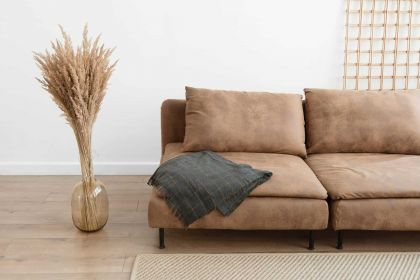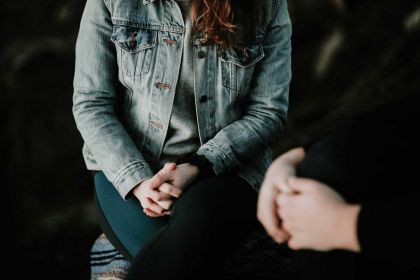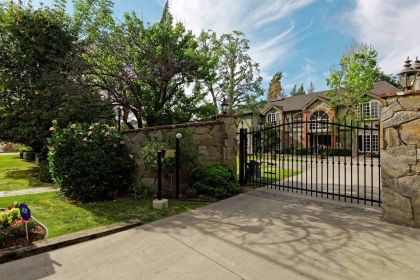Couples Rehab in Los Angeles, California for Addiction Recovery
Harmony Place has three facilities based in Los Angeles, California, that specialize in drug and alcohol addiction rehab for couples. Our couples recovery programs are designed to support both partners in their recovery journey, providing a unique opportunity to heal together in a supportive and nurturing environment.
Harmony Place’s Rehab Center accepts health insurance and may accept insurance plans for couples addiction treatment, including residential inpatient treatment for couples. Call us today to check your insurance coverage levels for couples rehab in Los Angeles.
What Is a Drug & Alcohol Addiction Treatment Program for Couples?
Drug and alcohol addiction treatment for couples is designed to help partners recover from substance abuse together. These programs offer tailored therapies and support to manage the unique dynamics of couples struggling with addiction, fostering mutual healing and strengthening their relationship.
In these treatment programs for couples, both people participate in individual counseling, couples relationship counseling for addiction, dual diagnosis treatment, and group activities that help their communication and understanding. The objective is to develop a supportive atmosphere where both partners can work through their issues and develop healthier coping mechanisms. By managing addiction as a shared challenge, couples can build a stronger foundation for long-term couples addiction recovery and a healthier relationship. These programs often include a couples aftercare program and resources to ensure continued support once treatment is completed.
Can Couples Go to Addiction Treatment and Rehab Together?
Yes, couples can go to addiction treatment and rehab together. Specialized programs help partners recover simultaneously, offering therapy and support tailored to their relationship dynamics. These programs provide joint treatment, individual counseling, couples support groups, group activities to foster mutual healing and strengthen their bond.
These programs offer joint therapy sessions, individual counseling for relationship rebuilding, and group activities to enhance healthy communication and mutual support. By addressing addiction together, couples can work through their challenges and develop healthier relationship patterns. This collaborative approach fosters a supportive environment, helping both partners achieve long-term sobriety and a stronger, more resilient relationship. Additionally, aftercare planning ensures sober living for couples and access to the resources and support needed to maintain their recovery journey together.
Who Can Benefit from a Couples Drug & Alcohol Rehab Program?
Couples struggling with drug and alcohol addiction can benefit from a couples rehab program. These programs are developed to treat the distinctive challenges faced by partners dealing with substance abuse, offering tailored therapies and support to help both patients recover together.
In a couples rehab program, both partners engage in treatment through couples counseling techniques, therapy sessions, individual counseling, and group activities that promote communication and mutual support. This approach helps couples understand each other’s struggles, develop healthier coping mechanisms, and build a stronger foundation for long-term sobriety. Additionally, these programs often include aftercare planning to ensure continued support and resources for maintaining recovery together.
Are you or a loved one searching for couples drug rehab near me? Contact us at Harmony Place to learn more about our drug and alcohol rehab treatment options for couples.
Can Rehab Programs for Substance Addiction Treatment Help Couples?
Yes, outpatient and residential rehab programs for substance addiction treatment can help couples. These specialized programs are created for challenges faced by partners dealing with addiction, offering therapy and support tailored to their relationship dynamics. By participating in joint therapy, individual counseling, and group activities, couples can strengthen their bond and work towards long-term sobriety together.
In these programs, both partners participate in joint therapy sessions, individual counseling, and group activities that promote mutual understanding and support. Couples can develop healthier coping mechanisms and fortify their bond by working through their issues together. The collaborative approach helps build a solid foundation for long-term sobriety and a more resilient relationship. Additionally, aftercare planning ensures couples have the resources and support needed to maintain their recovery journey together.
Can Non-Married Partners Enter a Couples Drug & Alcohol Rehab Program?
Yes, non-married partners can enter drug and alcohol rehab for couples in California. These programs cater to patients in committed relationships, not just offering rehab for married couples, and provide therapy and support tailored to their specific dynamics. Both patients can benefit from joint couples substance abuse treatment and counseling, working towards recovery together.
Couples rehab programs offer joint therapy sessions, individual counseling, and group activities tailored to the dynamics of the relationship. This approach helps both patients address their addiction issues, improve communication, and build a stronger foundation for long-term sobriety. Whether married or not, partners can benefit from the supportive environment and shared recovery journey.
Why Is Couples Drug & Alcohol Rehab Pivotal for Individuals Seeking Recovery in SoCal?
Couple’s drug rehab and couples alcohol rehab are pivotal for individuals seeking recovery in SoCal because they address the unique dynamics of relationships while treating substance abuse. Focusing on both partners simultaneously, these programs help to heal the relationship, improve communication, and build a supportive environment conducive to long-term recovery.
In Southern California, where social and lifestyle factors can influence addiction, a couples rehab program offers tailored support to meet each partner’s individual needs. It fosters mutual understanding and collaboration, which are crucial for overcoming addiction together. If you’re searching for rehab for couples near me, this type of program can provide the tools and structure needed to maintain sobriety and strengthen your relationship. By equipping couples with strategies to face challenges as a team, the program enhances the chances of lasting recovery and a healthier future.
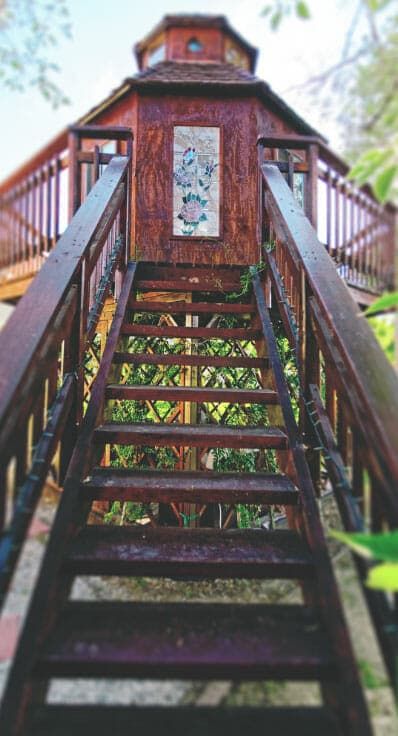
Check Your Insurance Coverage For Couples Rehab
Does Insurance Cover Addiction Rehab for Couples in Los Angeles, CA?
Private health insurance covers drug addiction rehab for couples in Los Angeles, CA. Coverage for treatment programs varies based on the insurance plan and provider, but many policies include addiction treatment and couples therapy benefits. Checking with your insurance provider can clarify your specific coverage details.
To determine the specifics of coverage, contacting your insurance directly is essential. They can give you information about what is covered under your plan, including any co-pays or limitations. Additionally, many rehab facilities in Los Angeles can assist with verifying insurance benefits and navigating the coverage process to ensure you receive the support needed for effective treatment. Contact us at Harmony Place’s Treatment Center to check your insurance coverage for couples rehab treatment in Los Angeles.
How Much Does Couples Rehab Cost Without Private Health Insurance in SoCal?
The cost of couples rehab treatment programs without private health insurance in SoCal can vary widely, typically ranging from $5,000 to $30,000 for a 30-day program. Factors influencing the cost include the facility’s location, amenities, and the level of care provided.
Programs with luxury accommodations or specialized services may be on the higher end of the spectrum, while more basic options can be more affordable. Couples must research various facilities, inquire about payment plans, and explore other financial assistance options that may be available to manage the costs of rehab effectively.
How Much Does Couples Rehab Cost With Private Health Insurance in Los Angeles?
The cost of couples rehab treatment programs with private health insurance in Greater Los Angeles can vary based on the insurance plan and coverage. Typically, insurance may cover a significant portion of the therapy costs, leaving patients responsible for co-pays, deductibles, or a percentage of the total cost.
The extent of coverage depends on each insurance plan’s specifics, including the program type and facility. Patients should contact their insurance to verify their benefits and discuss out-of-pocket expenses. Many couples recovery centers can assist with verifying coverage and navigating the financial aspects to ensure treatment is accessible and affordable.
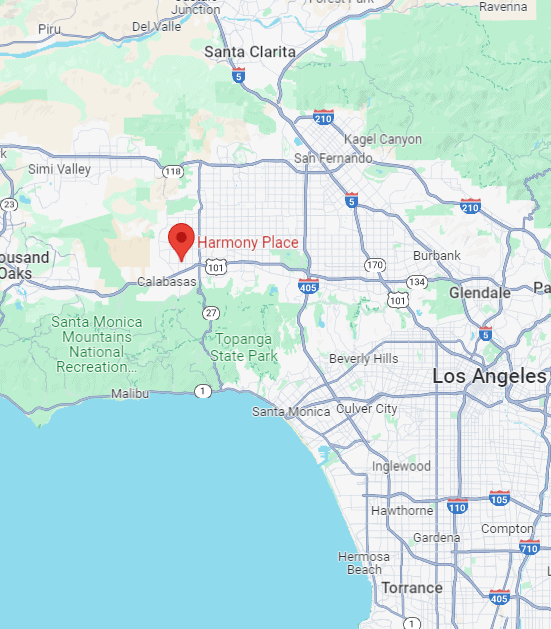
How to Find Couples Rehab Treatment Centers in Los Angeles
Finding couples rehab treatment centers in Los Angeles involves researching facilities that specialize in addiction recovery for partners. Look for programs with solid reputations, tailored therapies, and supportive environments. Consider location, amenities, and treatment approaches. Call Harmony Place Addiction Recovery at (855) 652-9048 to learn more about our outpatient and residential treatment options.
Couples Inpatient Rehab Centers in Woodland Hills
Couples inpatient rehab centers in Woodland Hills offer specialized treatment for partners recovering from substance addiction. These facilities create a supportive environment tailored to couples, helping them address their addiction together and strengthen their relationship. Harmony Place and Harmony Place East are options in the area.
Harmony Place, located at 23041 Hatteras St, Woodland Hills, CA 91367, and Harmony Place East, at 22913 Burbank Blvd, Woodland Hills, CA 91367, are prominent options. Both centers accept insurance, allowing couples to access the care they need.
Couples Outpatient Rehab Centers in Woodland Hills
Couples outpatient rehab centers in Woodland Hills provide flexible treatment options for partners recovering from substance addiction while permitting them to keep their daily routines. These centers offer tailored therapies to address both partners’ needs in a supportive, upbeat setting.
Valley Restoration Center, located at 22900 Ventura Blvd, Ste 314, Woodland Hills, CA 91364, offers outpatient services for couples and accepts insurance. This makes it easier for partners to access the care they need while balancing their personal and professional lives.
Alternative Ways to Find Couples Rehab Options in Los Angeles
Finding couples rehab options in Los Angeles can be streamlined using several effective methods. You can discover suitable treatment centers by leveraging online resources, consulting healthcare professionals, and seeking personal recommendations. Additionally, contacting facilities directly will provide detailed information on services, costs, and insurance coverage.
To find couples rehab treatment centers in Los Angeles, you can use the following methods:
- Research Online: Search online for couples rehab centers in your area. Look for facilities with positive reviews and comprehensive treatment programs.
- Check Directories: Utilize directories and listings that specialize in addiction treatment services to find options specific to couples.
- Consult with Your Doctor or Therapist: Seek recommendations from your healthcare provider or therapist, who can offer referrals based on your needs.
- Ask for Recommendations: Ask support groups or friends with experience with couples rehab programs for personal recommendations.
- Call the Facility: Once you have a list of potential centers, call them to inquire about their services, costs, and insurance coverage.
Employing these strategies can help you identify couples rehab centers in Los Angeles that meet your recovery needs.
Couples Drug & Alcohol Addiction Rehab Admissions Process and Treatment Schedule
The couple’s drug and alcohol addiction treatment rehab process involves key therapy methods to address both partners’ needs and strengthen their relationship. These include couples therapy, individual counseling, group therapy, family therapy, Cognitive Behavioral Therapy (CBT), Motivational Interviewing (MI), and 12-step programs, each offering tailored support for recovery.
Here are some example therapy methods and a detailed explanation of each:
Couples Therapy: Couples behavioral therapy incorporates Joint therapy sessions where both partners discuss their addiction, relationship dynamics, and recovery goals.
- Details: Couples therapy helps partners communicate more effectively, resolve conflicts, and understand each other’s perspectives. This therapy focuses on rebuilding trust, improving emotional connection, trauma healing for couples, and developing strategies for mutual support.
Individual Counseling: Each partner will have one-on-one sessions with a therapist.
- Details: Individual counseling addresses personal issues related to addiction, such as underlying mental health conditions, trauma, or self-esteem. It helps partners work through personal challenges and develop coping skills that complement their joint recovery efforts.
Group Therapy: Sessions with other couples or individuals in a similar situation.
- Details: Group therapy provides a supportive environment where couples can share experiences, gain insights, and learn from others’ experiences. It fosters community and accountability, helping partners see they are not alone in their recovery journey.
Family Therapy: Involves family members in treatment sessions to manage the impact of addiction on the family unit.
- Details: Family therapy helps to repair relationships and improve communication among family members. It addresses how addiction has affected the family dynamic and works on rebuilding healthy family interactions and support systems.
Cognitive Behavioral Therapy (CBT): Focuses on identifying and changing negative thought patterns and behaviors.
- Details: CBT helps couples identify and change destructive thought patterns and behaviors that add to their substance addiction. It teaches practical skills to manage cravings, prevent relapse, and handle stress healthily.
Motivational Interviewing (MI): A collaborative, client-centered approach to enhance motivation for change.
- Details: MI helps couples explore and resolve ambivalence about their addiction and recovery. It focuses on enhancing intrinsic motivation and setting achievable goals for short- or long-term treatment.
12-Step Programs: Structured support groups based on the 12-step recovery model.
- Details: 12-step programs, such as Alcoholics Anonymous (AA) or Narcotics Anonymous (NA), provide a framework for recovery and support through shared experiences and accountability. Couples can participate in meetings together or separately to gain additional support.
Each of these therapy methods plays a crucial role in the rehab process, addressing various aspects of addiction and relationship dynamics to support a successful recovery journey for both partners.
Can I Share a Bed With My Partner in Couples Addiction Rehab?
No, you typically cannot share a bed with your partner in couples addiction rehab. Most facilities enforce separate accommodations to maintain focus on recovery. This policy helps prevent distractions and conflicts, allowing both partners to fully engage in individual and joint therapy while creating a supportive therapeutic environment.
These policies create a therapeutic environment where both partners can concentrate on individual and joint therapy without distractions. Separate sleeping arrangements help reinforce personal boundaries and prevent potential conflicts or distractions, allowing both partners to engage fully in their recovery process. Each partner will have their own space, but the program will contain plenty of opportunities for joint therapy and shared activities.
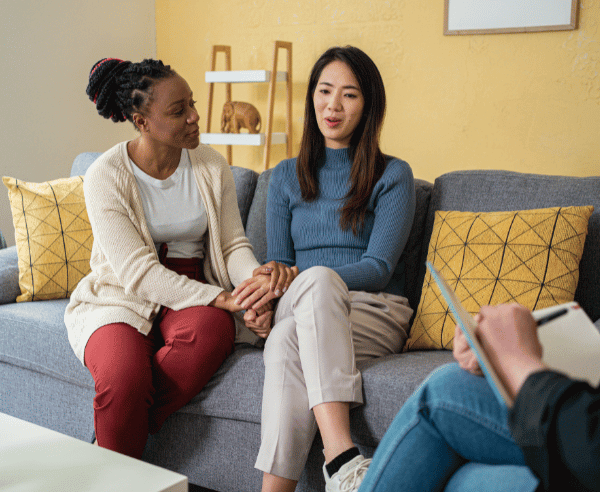
What if Only One Person in the Relationship Has a Drug or Alcohol Addiction?
If only one person in the relationship has a drug or alcohol addiction, couples rehab can still be beneficial. The partner without addiction can participate in therapy to understand the impact of the addiction, improve communication, and support their partner’s recovery. This approach helps both partners address relationship dynamics and strengthen their bond.
In such cases, the treatment typically includes individual therapy for the person with addiction and joint sessions for both partners. The non-addicted partner gains insights into addiction and learns how to offer constructive support while addressing their feelings and challenges. This collaborative process fosters a healthier relationship and enhances the likelihood of successful recovery. Contact us at Harmony Place to inquire about our couples rehab programs.
- Inpatient Rehab Los Angeles
- Intensive Outpatient Program Los Angeles
- Evening Intensive Outpatient Program
- Medication Assisted Treatment Los Angeles
- Outpatient Rehab Program Los Angeles
- Los Angeles Partial Hospitalization Program
- Medically Assisted Detox LA
- Sober Living Homes and Halfway Houses
- Clinical Care Los Angeles
- Family Therapy Rehab Program
- Couples Rehab Los Angeles
- Men’s Addiction Rehab California
- Women’s Rehab Center SoCal
- Addiction Treatment for Veterans
- Short-Term Addiction Rehab
- Long-Term Addiction Rehab
- Private Luxury Rehab Los Angeles
- Faith-Based Rehab Programs
- Non-Faith-Based Rehab
- Rehab for Professionals LA
- Rehab Aftercare Alumni Programs
Couples Rehab Stats and Information in Southern California
- According to data from the NIH (National Institute of Health), Behavioral Couples Therapy (BCT) aims to support abstinence and enhance relationship dynamics for married or cohabiting individuals struggling with alcoholism or drug abuse. In BCT, the patient and their partner establish a daily “Recovery Contract,” where the patient commits to abstinence, and the partner supports this effort. The contract often includes daily medication monitoring, self-help meetings, and drug urine screens. BCT also focuses on increasing positive activities and improving communication skills.
- According to a TIP-39 (Treatment Improvement Protocol) report, traditional gender roles are linked to substance misuse, with strict adherence to stereotypical expectations increasing the risk of substance use disorders (SUD) in young people. Men are at higher risk for early- and late-onset substance use compared to women. However, women often progress from initial use to SUDs more quickly, especially with alcohol, cannabis, and opioids. While SUD prevalence is higher in men, women experience more severe biopsychosocial, functional, and quality-of-life consequences, including family-related issues. Women also face unique barriers to treatment, such as childcare responsibilities and lack of family support. Adolescents’ development of SUDs varies by gender due to differences in initiation, frequency of use, and biological, behavioral, and personality factors.
- According to data from the Gottmann Institute, relationship problems that may be managed in therapy include routine conflict and arguments, inadequate communication, emotionally estranged couples on the brink of separation, and problems such as sexual complications, infidelity, finances, and parenting.
- Having a partner who drinks too much or abuses drugs is like dropping a stone into a calm pond—the impact spreads and affects everything nearby. In the case of a partner with substance abuse issues, the consequences extend to their children, relatives, friends, and co-workers. However, many believe that, apart from the abuser, the most significant toll is often borne by the partner of the abuser, according to information from AAMFTA (the American Association for Marriage and Family Therapy).
- According to a report from the Substance Abuse and Mental Health Services Administration (SAMHSA), an individual’s motivation to change and recover from substance use is a key factor in treatment success. It greatly increases the likelihood of completing the program with the commitment necessary for long-term recovery. Entering rehab together in a couples rehab setting can be a key motivator for recovery.
The Most Famous Attractions in Los Angeles, California
Los Angeles, California, also known as the Golden State’s crown jewel, boasts many attractions that draw visitors worldwide. In LA, you’ll find the famous Hollywood Walk of Fame, where you can view the stars of your favorite movies and celebrities. DTLA, or Downtown Los Angeles, is a vibrant area with museums, trendy eateries, and historic landmarks.
You can appreciate the sun and sand at Santa Monica Beach and Malibu in Southern California or SoCal. The upscale neighborhoods of Beverly Hills and Pacific Palisades offer luxurious shopping and dining experiences. Sports fans can watch a game featuring the Los Angeles Lakers or Dodgers, while music lovers can enjoy concerts at the Hollywood Bowl. Explore the cultural richness of Pasadena, the natural beauty of the Valley, and the prestigious campuses of UCLA and USC. With its sunshine, desert landscapes, and diverse attractions, Los Angeles truly offers something for everyone.

